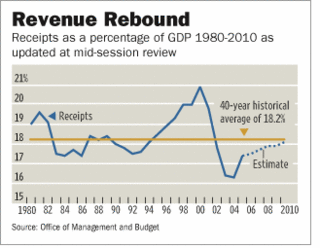Jack Nargundkar
(Germantown, MD, July 21, 2005)— 7/7 has put President Bush’s oft-repeated claim—“We will fight the terrorists abroad so we do not have to face them here at home” —on notice. While announcing the release today of his first book, The Bush Diaries, author Jack Nargundkar echoed a growing American sentiment relating to the efficacy of this policy in stopping homegrown terrorists:
“I suspect that both, a botched implementation of the Bush Doctrine and the media’s pre-Iraq war complacency, are responsible for our current quandary, which keeps us all in a state of perpetual anxiety with respect to our way of life, liberty, and the pursuit of happiness! This isn’t the way it was supposed to be?”
In The Bush Diaries, Jack Nargundkar recommends that the United States commit to two critical Cs in our foreign relations, especially when it comes to Muslim nations. A foreign policy that reflects our core values and one that is applied consistently; but one that forsakes convenience by refusing to make policy exceptions for allied countries with values that are antithetical to our own.
On the evolving Iran-Iraq relationship, Jack Nargundkar writes in The Bush Diaries,
“I think that Shia hegemony as a counter-balance to Sunni Arab supremacy—if allowed to proceed as a natural evolution of the new realpolitik in the Middle East—could benefit us in the long-term, without the need for another preemptive war in the short-term.”
In The Bush Diaries, Jack Nargundkar kept tabs on what the political pundits—at The Washington Post, The Wall Street Journal, and The New York Times—had to say about the President’s policies and responded to them in real time. Some of his opinions were published by each one of these prestigious newspapers. The key difference between The Bush Diaries and other books on President Bush: Jack Nargundkar comments not only on the performance of the President, but he also critiques the media pundits who evaluate the presidency.
Jack Nargundkar has spent over 20 years as a marketing professional in the global software and telecommunications industries. As a first generation Indian-American, Jack Nargundkar brings a unique perspective to U.S. economic and foreign policy. An Executive Education Fellow at the University of Maryland’s Robert H. Smith School of Business, Jack Nargundkar has a BSEE from Bombay University and an MBA from Columbia Business School in New York City.
THE BUSH DIARIES: A Citizen’s Review of the First Term
290 pp, $19.95
ISBN: 0-595-35898-5
Author: Jack Nargundkar
Publisher: iUniverse
Publication Date: July 2005
Available From: Ingram Book Group, Baker & Taylor, and iUniverse
To order: call 1-800-AUTHORS or go online at any of the following:
http://www.amazon.com/exec/obidos/tg/detail/-/0595358985/qid=1123084435/sr=1-3/ref=sr_1_3/102-5718978-7163300?v=glance&s=books
http://search.barnesandnoble.com/booksearch/isbnInquiry.asp?userid=Xy63I1dBQR&isbn=0595358985&itm=3

# # #
Media Contact:
Jack Nargundkar
(240) 426-7018
j.nargundkar@att.net
www.nargundkar.com/jack.htm
http://politicalpotpourri.blogspot.com/
